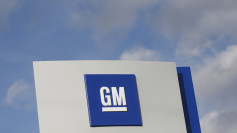While tech giants like Huawei and Xpeng are fervently advancing in the autonomous driving space in China, Tesla isn't staying behind.
According to exclusive information obtained by 36Kr, Tesla initially plans to establish a local operations team of around 20 members to promote the rollout of its Full Self-Drive (FSD) solution in the Chinese market. "Engineers from Tesla's headquarters have been dispatched for training," an industry insider informed 36Kr.
Alongside, Tesla is reportedly setting up a data annotation team in China, comprising about a hundred people, which is essential for training the FSD algorithm.
More significantly, Tesla has clarified its stance on vehicle data storage. On August 14, Tesla China announced that they have established a data center in China. Consequently, data generated from all vehicles sold in mainland China will be stored within the country.
FSD, which Tesla has been honing for years, differs from the standard Autopilot assistive driving system currently installed in vehicles. FSD's goal is full automation without human intervention.
As early as 2020, Tesla introduced the FSD Beta version in North America and has since made numerous updates. Recently, Tesla's CEO Elon Musk mentioned that the next major release, FSD V12, would no longer be in beta and would be available to all users.
Despite multiple delays in FSD's deployment, it now seems closer to being realized. Musk has emphasized its effectiveness on American roads and hinted at the possibility of achieving L4 or even L5 fully autonomous capabilities later this year.
Technologically speaking, FSD is now at a mature phase, leading Tesla to push for its introduction in various global markets. In June, media reported that Tesla had actively been testing FSD in countries such as the UK, Norway, Germany, and China.
These indicators hint at Tesla's unwavering ambition to penetrate the Chinese market. Feedback from users suggests that a vehicle system update on August 9th involved autonomous driving data collection, and users could opt-in or out as per their preference.
This year, numerous domestic tech companies and automakers, including Huawei, Xpeng, Li Auto, and NIO, are expanding their intelligent driving solutions from highways to urban areas. Almost all have plans for rolling out advanced autonomous driving solutions in dozens or even hundreds of cities.
Regardless of how consumers perceive it, autonomous driving has emerged as a focal point for these new brands.
For Tesla, which pioneered this space, the escalating competition in China over the past two years is evident. FSD has been one of its few distinct advantages, but now, even this edge might be challenged, emphasizing the urgency of FSD's introduction in China.
As the countdown for FSD's debut in China begins, domestic competitors are gearing up for a head-to-head showdown with Tesla.
Having refined its algorithm over the years, Tesla's FSD holds a pioneering position in the industry. Over the past few years, innovations like the BEV+Transformer and the Occupancy neural network have been eagerly adopted by domestic automakers and intelligent driving suppliers, underscoring Tesla's early-mover advantage.
Recent news highlights that FSD is addressing AI's final hurdle: vehicle control. Musk recently stated that substituting traditional control modules with AI algorithms would drastically reduce the current software codebase.
Addressing challenges in perception, prediction, planning, and control are imperative for autonomous driving. According to Musk, the upcoming FSD V12 will employ an all-new "end-to-end" framework, incorporating an integrated model of perception, prediction, and planning. Overcoming the control phase would remove the final obstacle.
However, the main concern is whether a solution developed primarily for the U.S. market can meet the challenges of the Chinese landscape. After all, road conditions and traffic patterns, especially in metropolises like Beijing and Shanghai, differ significantly. The performance of Tesla's algorithms and the overall experience might not necessarily have an advantage here.
An autonomous driving industry expert said that introducing FSD in China would require extensive real-world mileage testing to understand its performance under Chinese conditions. Only after identifying areas of concern can relevant data be collected to fine-tune the neural network models or derive targeted strategies.
Autonomous driving development and testing involve significant data collection and address road safety concerns. Approval from regulatory authorities is also crucial.
An informed source shared that for testing in Shanghai, Tesla must first apply for a temporary license in Pudong Lingang, its registered location. After a two-week trial run and subsequent reviews, they can obtain long-term testing qualifications, a process that might take up to three months.
Setting up teams, importing equipment, and undergoing testing all consume time and resources. This might present the last window of opportunity for local Chinese automakers and solution providers.




